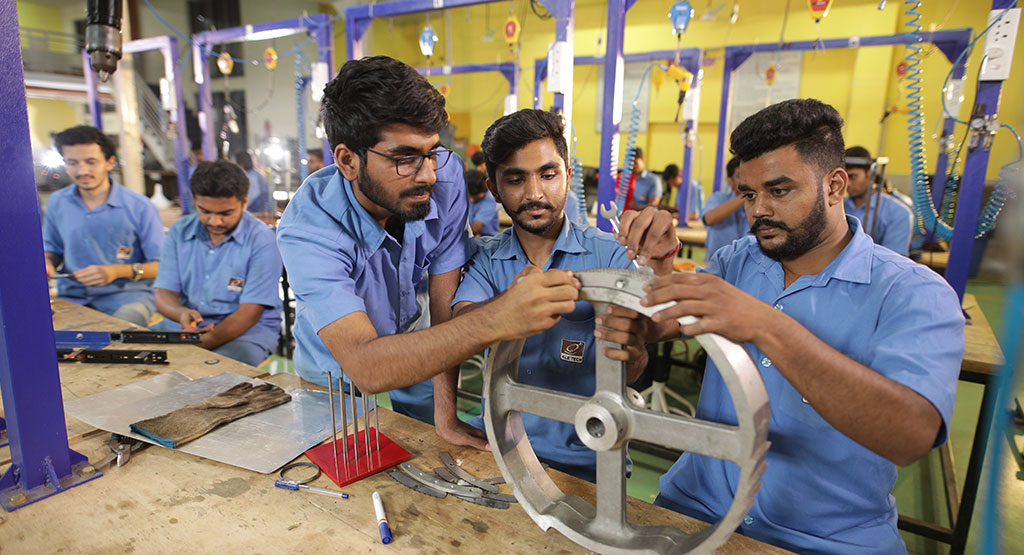India has the potential to become the next manufacturing hub.
The concept of the Industry 4.0 revolution is set to enter India’s manufacturing society through the advancement of IoT, Cyber-physical systems, Big data analytics, and other related key technologies. On the other side, Industry 4.0 requires a strong base of enterprise asset management for its successful implementation. The traditional knowledge and conventional skill sets do not fit into the scope of Industry 4.0. Altogether, the modern manufacturing system is experiencing a paradigm shift, and academia has to cope with this dynamically changing industrial environment.

Advanced Manufacturing Systems (AMS) – a PG program offered by the School of Mechanical Engineering has the ingredients to equip students to meet the demanding expectations of the emerging industry 4.0 scenario. The school witnesses that new recruits who can apply theoretical knowledge to real industrial problems fare better in their careers in the upcoming industrial scenario. Accordingly, in consultation with experts from industry and institutes of higher learning, has developed an extensive practice-based curriculum with courses interwoven around two niche areas: Product Lifecycle Management (PLM) and Enterprise Resource Planning (ERP). All courses have immersive learning experience components for students to get ‘industry-like exposure’. The lead organizations: Dassault Systemes Foundation, 3D PLM, EDS Technologies, Intelizign, VedhaSoft Technology – a development partner to SAP India and other leading industries and organizations are actively and continuously associated with the University for upgrading the curriculum, training the students and faculty as per today’s industrial requirements. Industry partners are also part of the course delivery and assessment process.